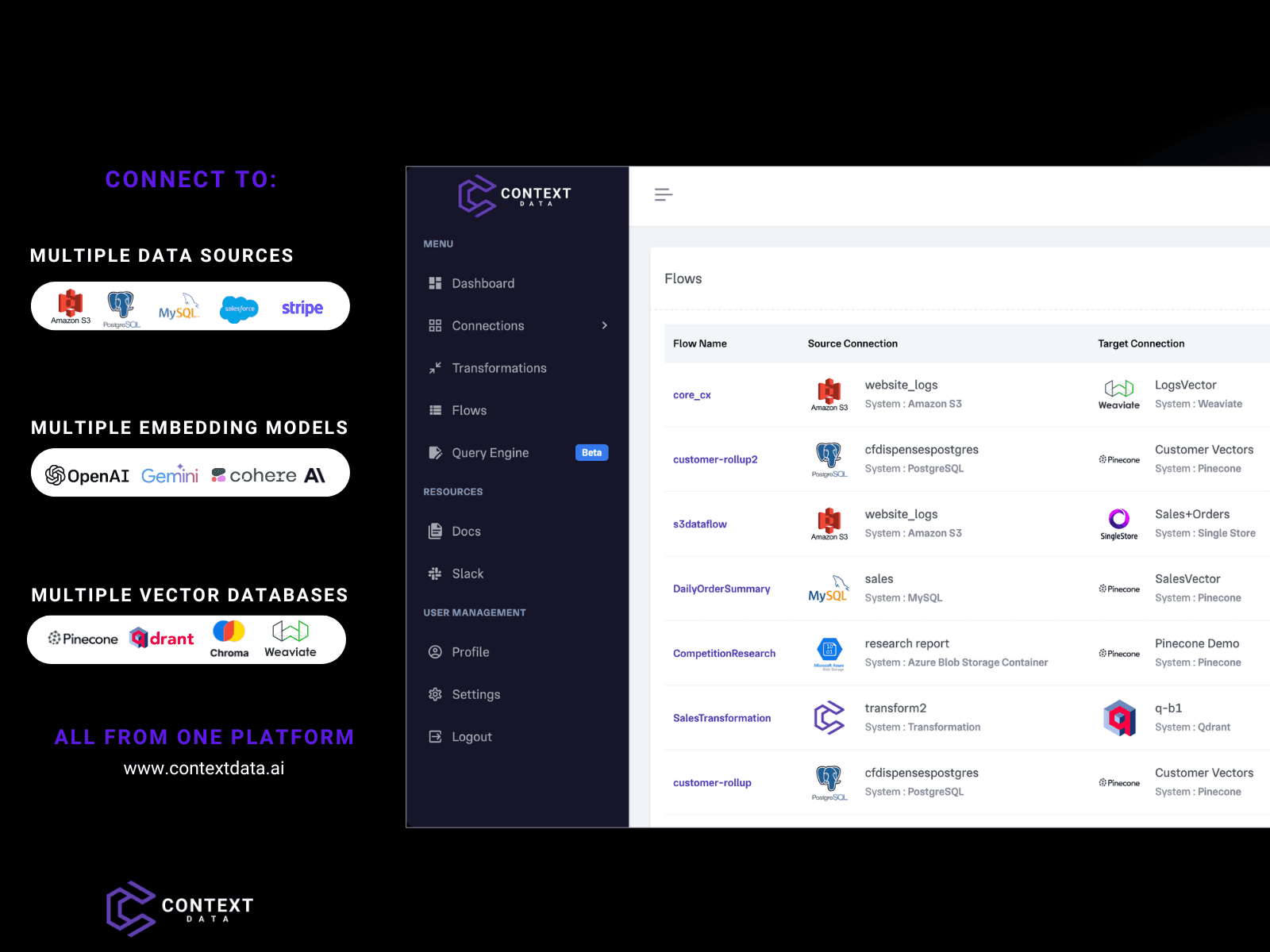AWS Cognito vs. Keycloak
AWS Cognito
Amazon Cognito is an identity platform for web and mobile apps. It’s a user directory, an authentication server, and an authorization service for OAuth 2.0 access tokens and AWS credentials. With Amazon Cognito, you can authenticate and authorize users from the built-in user directory, from your enterprise directory, and from consumer identity providers like Google and Facebook.
Keycloak
Keycloak is an open source identity and access management solution. It supports Keycloak single-sign-on and OpenID Connect or SAML 2.0 Identity Providers (Google, Facebook, GitHub etc).
Reviews
Reviews
| Item | Votes | Upvote |
|---|---|---|
| No pros yet, would you like to add one? | ||
| Item | Votes | Upvote |
|---|---|---|
| No cons yet, would you like to add one? | ||
| Item | Votes | Upvote |
|---|---|---|
| No pros yet, would you like to add one? | ||
| Item | Votes | Upvote |
|---|---|---|
| No cons yet, would you like to add one? | ||
Frequently Asked Questions
AWS Cognito and Keycloak both offer robust user authentication solutions, but they have different strengths. AWS Cognito integrates seamlessly with other AWS services, making it a good choice if you are already using AWS for your infrastructure. It supports OAuth 2.0 and offers built-in user directory functionality. Keycloak, on the other hand, is an open-source solution that supports single-sign-on (SSO) and a variety of identity providers via OpenID Connect or SAML 2.0. Keycloak is highly customizable and can be deployed on-premises or in the cloud. If you prefer an open-source solution with flexible deployment options, Keycloak might be the better choice. However, if you are looking for a solution that integrates tightly with AWS services, AWS Cognito could be more suitable.
Amazon Cognito is an identity platform for web and mobile apps. It serves as a user directory, an authentication server, and an authorization service for OAuth 2.0 access tokens and AWS credentials. With Amazon Cognito, you can authenticate and authorize users from the built-in user directory, from your enterprise directory, and from consumer identity providers like Google and Facebook.
Pros of AWS Cognito include its generous free tier, low price per monthly active user, and strong integration with the AWS ecosystem. These features make it a cost-effective and scalable solution for user authentication. However, some users may find the setup and configuration complex if they are not familiar with AWS services.
AWS Cognito can handle authentication from the built-in user directory, enterprise directories, and consumer identity providers like Google and Facebook. This makes it versatile for different types of applications and user bases.
Yes, AWS Cognito is suitable for large-scale applications due to its scalability and integration with the AWS ecosystem. It can handle a high number of users and provides features like multi-factor authentication and encryption for added security.
Yes, AWS Cognito integrates seamlessly with other AWS services such as AWS Lambda, Amazon API Gateway, and Amazon S3. This allows developers to build comprehensive solutions with secure user authentication and data management.
Keycloak is an open source identity and access management solution. It supports single-sign-on and integrates with OpenID Connect or SAML 2.0 Identity Providers such as Google, Facebook, and GitHub.
Keycloak offers several features including single-sign-on, identity brokering and social login, user federation, client adapters, and an admin console. It supports standard protocols like OpenID Connect and SAML 2.0.
Currently, there are no user-generated pros and cons for Keycloak. However, some general pros include its open source nature and extensive protocol support. Potential cons may include a steep learning curve for new users.
Organizations that require robust identity and access management solutions can benefit from Keycloak. It is particularly useful for companies needing to implement single-sign-on across multiple applications.
Related Content & Alternatives
- 2
 1.Amazon Cognito
1.Amazon CognitoThe biggest advantage of Cognito is that it's a part of the AWS ecosystem and integrates well with other AWS services. The free tier comes with 50,000 MAUs and the price for each additional MAU starts at $0.0055/month and goes down to as low as $0.0025/month as you scale to tens of millions of users. It integrated with four federated identity providers - your users can sign up with Facebook, Google, Apple and Amazon.
- 1
 2.Firebase
2.FirebaseGoogle's Firebase is an entire app development platform that's packed with features.It comes with storage, cloud functions, monitoring and, of course, user authentication. The free tier comes with 50,000 MAUs. Beyond that pricing start at $0.0055/MAU and goes down to as low as $0.0025/MAU as you scale to millions of users. Firebase authentication supports email and password auth, phone auth, magic links, two-factor authentication and social identity providers - mainly Google, Google Play Games, Facebook, Apple, Microsoft, Twitter, GitHub and OAuth access tokens.
- 1
 3.Auth0 by Okta
3.Auth0 by OktaAuth0 is an identity and access management (IAM) platform designed to simplify authentication and authorization for applications. It provides a flexible solution that allows developers to implement secure login systems without having to build them from the ground up. Auth0 supports various authentication methods, including username-password credentials, social logins (like Google, Facebook, and GitHub), enterprise identity providers (such as Active Directory and SAML-based systems), and passwordless options. The platform is highly adaptable, offering over 30 software development kits (SDKs) that cater to a wide range of languages and frameworks—JavaScript, Python, .NET, iOS, Android, and more. This makes integration straightforward regardless of the tech stack. Beyond basic authentication, Auth0 offers advanced features like multi-factor authentication (MFA), single sign-on (SSO), and fine-grained authorization. These tools enable organizations to enforce complex access control policies, supporting both role-based (RBAC) and attribute-based (ABAC) models. Auth0 also addresses enterprise needs through features like user provisioning, directory synchronization, and support for B2B, B2C, and B2E use cases. It’s designed with scalability in mind, making it suitable for both startups and large enterprises. The platform’s extensibility allows developers to customize authentication flows, implement rules for conditional access, and integrate third-party services. Since its acquisition by Okta, Auth0 operates as a product unit under the Okta umbrella, complementing Okta’s broader suite of identity solutions while maintaining a developer-first focus. This combination brings together Okta’s enterprise-grade security with Auth0’s developer-centric approach, offering a comprehensive solution for modern identity challenges.
- 1
 4.Clerk
4.ClerkClerk is a comprehensive user management and authentication platform designed to streamline how developers handle user accounts within web and mobile applications. It offers a suite of embeddable UI components—such as <SignIn/>, <SignUp/>, <UserButton/>, and <UserProfile/>—that integrate seamlessly into your application without redirecting users off-site. These components are fully customizable to match your brand, making the user experience cohesive and frictionless. Under the hood, Clerk provides a robust API and SDKs compatible with modern frameworks like Next.js, Remix, React, and Expo. It handles the entire authentication lifecycle, supporting multifactor authentication (MFA), session management, passwordless sign-in (via magic links or one-time passcodes), and traditional password-based methods with breach detection. The platform also integrates social sign-on (SSO) with over 20 providers, enabling quick user onboarding while adhering to security best practices. Clerk’s security posture includes SOC 2 Type 2 certification and CCPA compliance, with continuous third-party audits and penetration testing. Fraud prevention measures, like disposable email blocking and bot detection powered by machine learning, are built-in to reduce spam and abusive sign-ups. For B2B SaaS applications, Clerk provides advanced multi-tenancy features, enabling organization-based user management with custom roles, permissions, auto-join functionality based on email domains, and invitation systems—all accessible through both code and an admin dashboard. Developers benefit from rapid integration, significantly reducing the time spent on building authentication systems from scratch. Clerk acts as the single source of truth for user data and integrates seamlessly with popular backend services like Supabase, Firebase, and Convex. With free access for up to 10,000 monthly active users, it’s positioned as a scalable solution that grows with your application’s needs.
- 1
 5.Supabase
5.SupabaseSupabase is the open-source alternative to Firebase. Like Firebase, it's a complete app development platform with user authentication, cloud functions, APIs, Postgres database, storage, vector embeddings, and other features. Supabase projects come with PostgreSQL's policy engine for fine-grained user access rules. It has social login integrations with Google, Facebook, GitHub, Azure (Microsoft), Gitlab, Twitter, Discord, and many more. They offer a customizable authentication component for React. Phone login and MFA can be added through third-party SMS providers such as Twilio or Bird. The free tier comes with 50,000 monthly active users. The Pro plan, at $25/month, comes with 100,000 MAUs and $0.00325/MAU beyond that.
- 0
 6.Stytch
6.StytchStytch provides a suite of tools designed to simplify authentication, authorization, and security for web and mobile applications. If you're developing an app and need a way for users to log in—whether with passwords, passkeys, or entirely passwordless methods—Stytch offers APIs and SDKs that handle these complexities. Their focus is on making authentication seamless for both developers and end-users while ensuring high security standards. For businesses, particularly B2B SaaS companies, Stytch enables advanced features like multi-tenancy, role-based access control (RBAC), and single sign-on (SSO). They provide an embeddable admin portal, allowing enterprise customers to manage their own authentication configurations, organizational settings, and integrations with identity providers—without constant developer involvement. Stytch places a strong emphasis on scalability and flexibility. Their tools are designed to “just work” across a range of use cases, from simple consumer apps to complex enterprise platforms. Developers can choose how much of the authentication flow they want to control—using pre-built UI components for quick implementation or leveraging headless SDKs and backend APIs for a fully customized experience. Security and fraud prevention are also core to Stytch’s offering. They provide real-time bot detection, device-aware multi-factor authentication, and intelligent rate limiting to protect against credential stuffing and other forms of account abuse. Their infrastructure ensures that login codes and authentication requests are delivered reliably, even when SMS or email providers fail. Stytch supports a broad range of programming languages and frameworks, including Python, Node.js, Java, React, and iOS, making integration into existing tech stacks straightforward. Their platform is designed for developers who want to build secure, user-friendly authentication systems without reinventing the wheel.
- 0
 8.Ory
8.OryOry is an API-first identity manager. They offer authentication, analytics, access control, machine-to-machine authentication and more. They have SDKs for the major languages: - Dart - .NET - Elixir - Go - Java - JavaScript - PHP - Python - Ruby - Rust Unfortunately, they don't offer a free tier. Pricing starts at $29/month and includes 1,000 daily active users. Then it's $30 / 1,000 additional DAUs.
- 0
 9.Appwrite
9.AppwriteAppwrite is an open-source platform for building scalable applications. It comes with authentication, databases, storage, and functions. It's basically a complete development platform. They have an extremely generous free plan with 75,000 MAUs free of charge and their Pro plan is only $15/month. Appwrite offers email and password login, phone auth, magic links, email OTP, anonymous login, JWT login, SSR login, custom tokens, and two-factor authentication.
- 0
 10.Auth.js
10.Auth.jsFormerly known as NextAuth. It's is an open-source authentication library originally built for NextJS. Auth.js is free to use and comes with over 80 integrations for various third-party identity providers such as Google, Facebook, Auth0, Apple etc. You can use it with your own database if you choose to. It works with MySQL, Postgres, MSSQL and MongoDB. Auth.js is compatible with Next.js, SvelteKit and SolidStart as of March 2024.
- 0
 12.Gluu Server
12.Gluu ServerGluu offers various authentication solutions based on open-source software. There is a self-hosted solution, a managed solution, and a free fully open-source solution based on the Linux Foundation Janssen Project.
- 0
 13.Okta
13.OktaOkta is an identity provider for organizations. It offers enterprise solutions for managing workforce and employee identities. It's HIPAA BAA and PCI compliant.
- 0
 14.Lucia Auth
14.Lucia AuthLucia is an open source auth library that abstracts away the complexity of handling sessions. It works with any JS runtime - Node.js, Bun, Deno, Cloudflare Workers. It's also fully typed. It integrates with MongoDB. PostgreSQL, MySQL, SQLite, and with their respective ORMs and query builders.
- 0
 15.GoPasswordless
15.GoPasswordlessGoPasswordless is an authentication service and SDK that focuses on enabling passwordless authentication flows in web apps.
- 016.OTPLESS
Authenticate customers with WhatsApp, SMS, Email, Biometrics, and more, with a 98% conversion rate on signup and sign-in.
- 0
 2.Context Data
2.Context DataContext Data is an enterprise data infrastructure built to accelerate the development of data pipelines for Generative AI applications. The platform automates the process of setting up internal data processing and transformation flows using an easy-to-use connectivity framework where developers and enterprises can quickly connect to all of their internal data sources, embedding models and vector database targets without having to set up expensive infrastructure or engineers.
- 0
 3.Creduse
3.CreduseInstant credit system integration for Apps and Games with Creduse API. Simplify credit management for your application or game with our developer-friendly API solution. Enjoy quick integration, robust scalability, and comprehensive support, plus powerful analytics to monitor user activity.
- 0
 24.Adligator
24.AdligatorAdligator is more than just an ad aggregator; it’s a sophisticated AI tool designed to give businesses, marketers and affiliate marketologists a strategic advantage in the highly competitive world of online advertising. By aggregating ads from major platforms like Facebook, Instagram, Facebook Messenger, and the Audience Network, Adligator enables users to dissect and understand their competitors' marketing strategies. This service provides a granular view into ad placements, formats, audience targeting, and performance metrics, empowering businesses to craft data-driven advertising strategies that drive results.
- 0
 19.DigitalGondola
19.DigitalGondolaThe source of truth for Software-as-a-Service buying advice. Over 750+ SaaS, Micro-SaaS & Digital Services reviewed, compared, and analyzed.
- 0
 59.OpenCulture
59.OpenCultureOpenCulture is a Slack app that enables anonymous Q&A sessions within organizations, fostering open communication and psychological safety. It allows team members to ask questions without fear of judgment while providing moderators the tools to maintain productive discussions. Key Features - Anonymous Question Submission: Users can easily submit questions using the /ask_ama command, with complete anonymity guaranteed - even from moderators - AI-Powered Moderation: Automatic content filtering to screen out inappropriate content and maintain professional discussions - Human Moderation Queue: Designated moderators can review and approve questions before they're posted publicly - Similar Question Detection: AI identifies duplicate questions to prevent redundancy and save leadership time answering repeated queries - Run team-wise AMAs: Flexible controls to enable Q&A sessions in any channel with configurable moderators and designated responders - Privacy-First Design: Built with security and anonymity as core principles, ensuring psychological safety for all participants Benefits - Increased Employee Engagement: Employees who feel heard are 4.6x more likely to perform their best work - Better Retention: Reduces turnover by giving employees a voice to express concerns - Enhanced Team Communication: Creates psychological safety that Google research shows is crucial for successful teams - Actionable Insights: Helps leadership understand organizational challenges and sentiment - Time Efficiency: Smart duplicate detection prevents repetitive questions and saves leadership time
- 1
 4.Google Search Console
4.Google Search ConsoleGoogle Search Console lets you see your site's Google traffic and to help Google index your pages. You can view the number of search impressions, search clicks, keywords used, track links to your pages, check core web vitals, crawl stats etc. You can also manually request crawling of certain pages and upload site maps.

